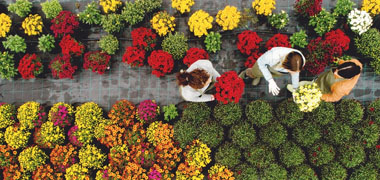
AI Occupational Exposure score unavailable For more insight, research the specific tasks and skills required for the role.
Explore all careersAn Agricultural Economist analyses economic data on agricultural production and markets to improve practices and inform policy, collaborating with stakeholders for sustainability.
Get qualified to work as an Agricultural Economist with a course recognised across Australia. Speak to a training provider to learn more.



Browse occupations related to Agricultural Economist



Exploring Agricultural Economist courses in Australian Capital Territory can pave the way for a rewarding career in a vital sector of the economy. With the Australian Capital Territory's unique geographic context, which blends urban and rural features, the role of agricultural economists is increasingly important. These professionals analyse economic data and provide insights that influence policy-making and agricultural practices, helping to safeguard the state’s agricultural future.
In Australian Capital Territory, there are specifically designed courses that equip students with the skills needed to excel in agricultural economics. The training providers offer tailored programs that delve into market analysis, resource management, and economic theory as they relate to agriculture. By enrolling in these Agricultural Economist courses, individuals will not only learn essential theoretical knowledge but also gain practical experience, preparing them for roles in both government and private sectors.
Students in the Australian Capital Territory can choose from three distinct Agricultural Economist courses, each tailored to meet industry needs. These comprehensive programs are delivered by Registered Training Organisations (RTOs) and recognised bodies, ensuring that participants receive high-quality education that is relevant and up-to-date. Graduates will emerge with the analytical skills and practical knowledge necessary to make informed decisions in the agricultural sector, providing them with a competitive edge in the job market.